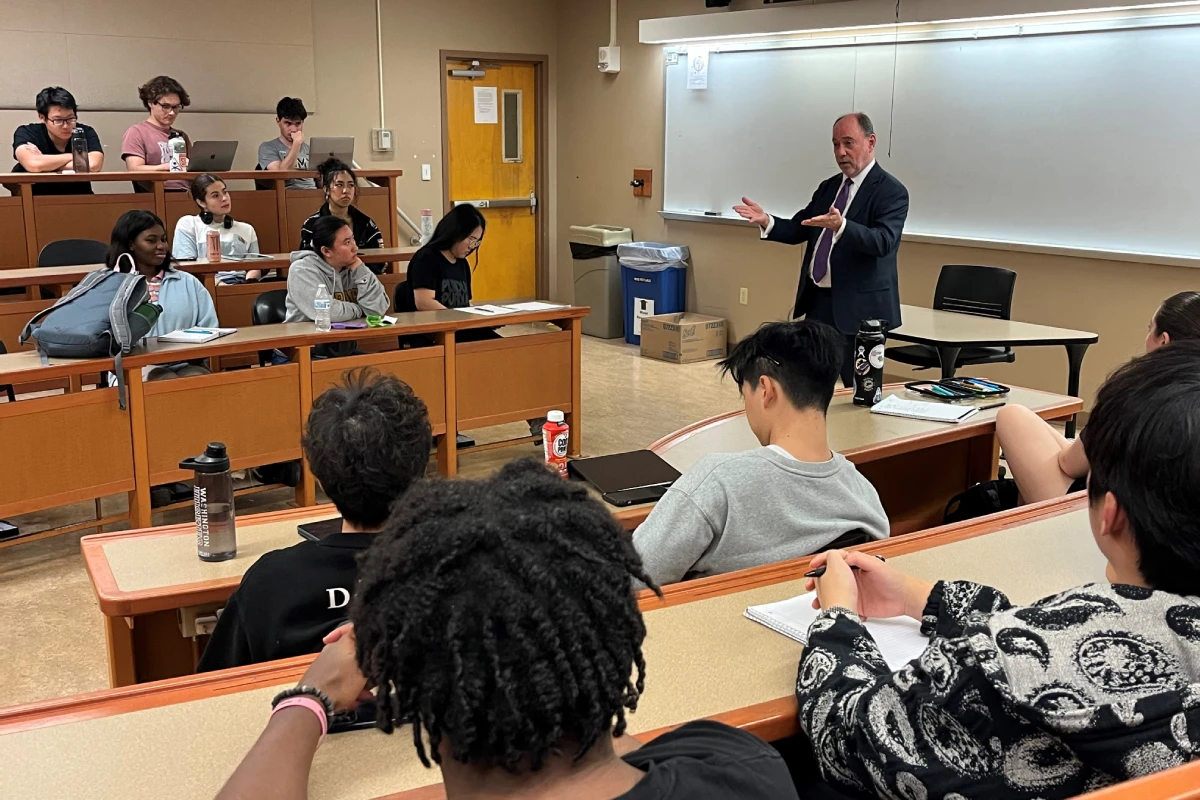
11-04-2024
On the popular television show What’s My Line?, panelists would often ask guests, “Is it bigger than a breadbox?” when trying to guess a person’s occupation. Douglas Holtz-Eakin uses a similar method in his work as president of the American Action Forum (AAF), sorting through cost/benefit analyses for economic, domestic and fiscal policy issues.
“You have to get the order of magnitude right,” says Holtz-Eakin, a Distinguished Fellow in the Daniels School of Business. “Is the policy you’re studying leading to a $10 billion, $100 billion, or $1 trillion impact? Having a public finance and economics framework, along with the discipline to put actual numbers to a policy, is key to making good decisions.”
That was one of the lessons Holtz-Eakin imparted to students in Professor Jillian Carr’s Economics of Public Policy course during an October visit to campus, where he also met with several faculty members. He told students about his path to founding the AAF, which provides data-driven insight into policy challenges in health care, taxes, immigration, trade, labor, technology and innovation, and regulations, in 2010.
He began his career in academia, serving on the faculties at Princeton University and Columbia University, before joining the staff of the Council of Economic Advisers under President George H. W. Bush. He then returned to university life as an endowed chair and economics department chair at Syracuse University.
Then it was back to Washington to become director of the Congressional Budget Office (CBO), this time during the tenure of George W. Bush. John McCain tapped him to be his chief economic policy adviser during his 2008 presidential campaign, but as Holtz-Eakin points out, “if you don’t win, you’re unemployed.” He says he enjoyed his time leading group projects in the CBO, and decided to do that rather than return to academia, leading him to start his own think tank.
Holtz-Eakin fielded questions from the class on a variety of topics, from the Soviet economic collapse to social security to the national debt. He was especially adamant that the latter topic is one that needs to be addressed sooner rather than later.
“The national deficit is $1.8 trillion. That’s a large amount of money that’s not available to help funding for things like education, businesses and software that will raise the standard of living,” he says.
“The question is whether capital markets will lose faith. We need a fiscal policy that’s fair to the next generation and promotes growth. There has to be a better balance.”